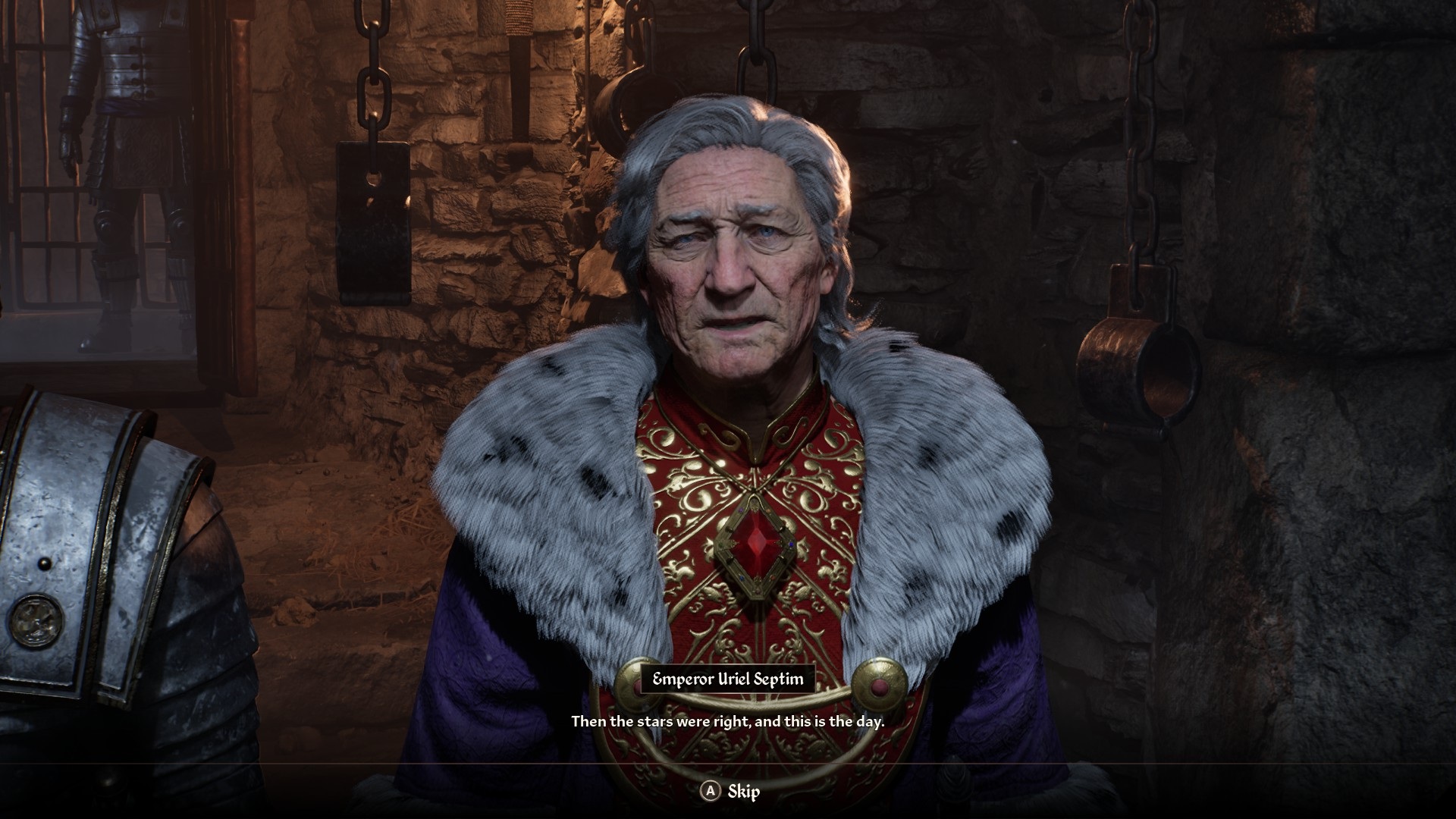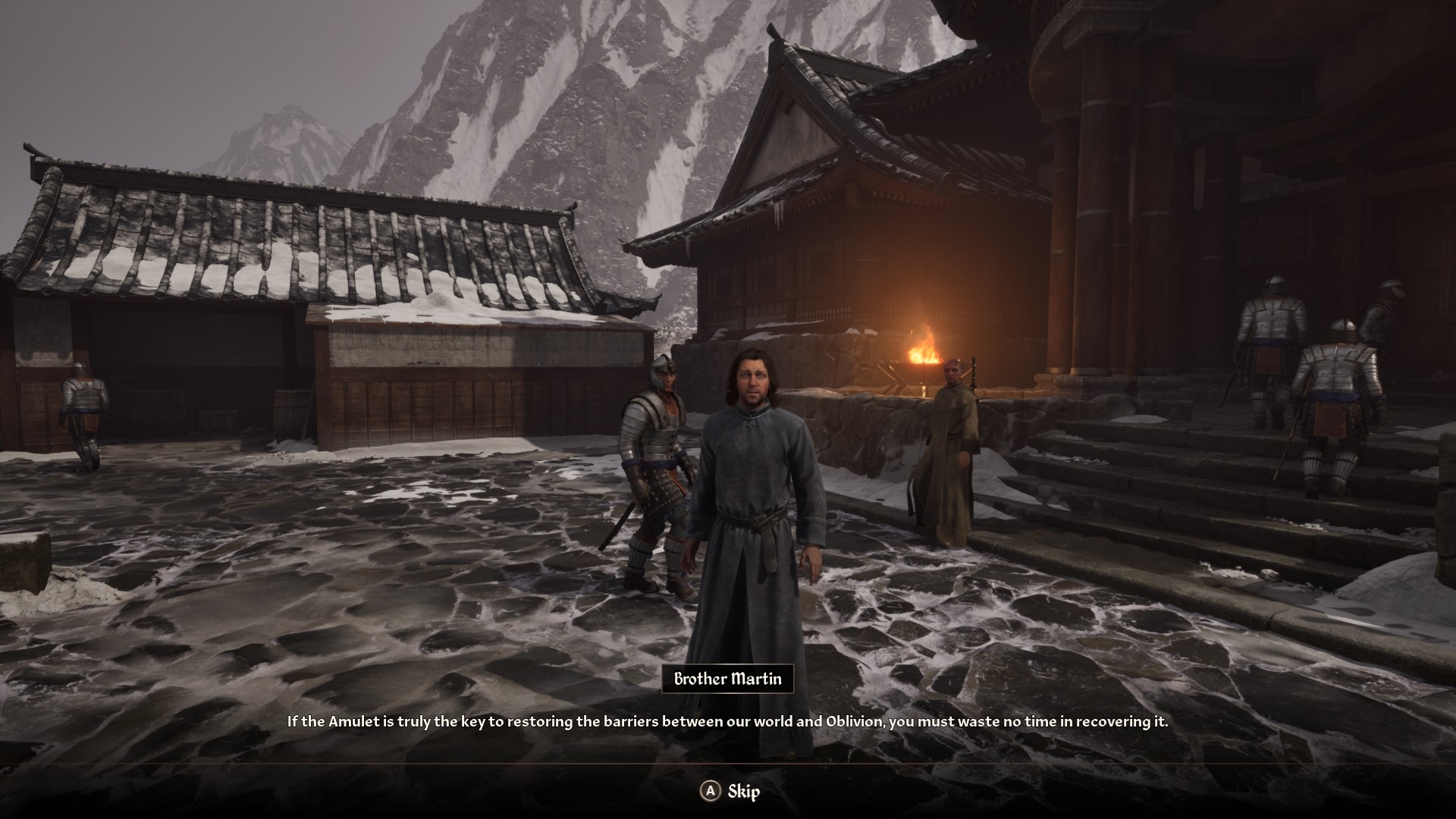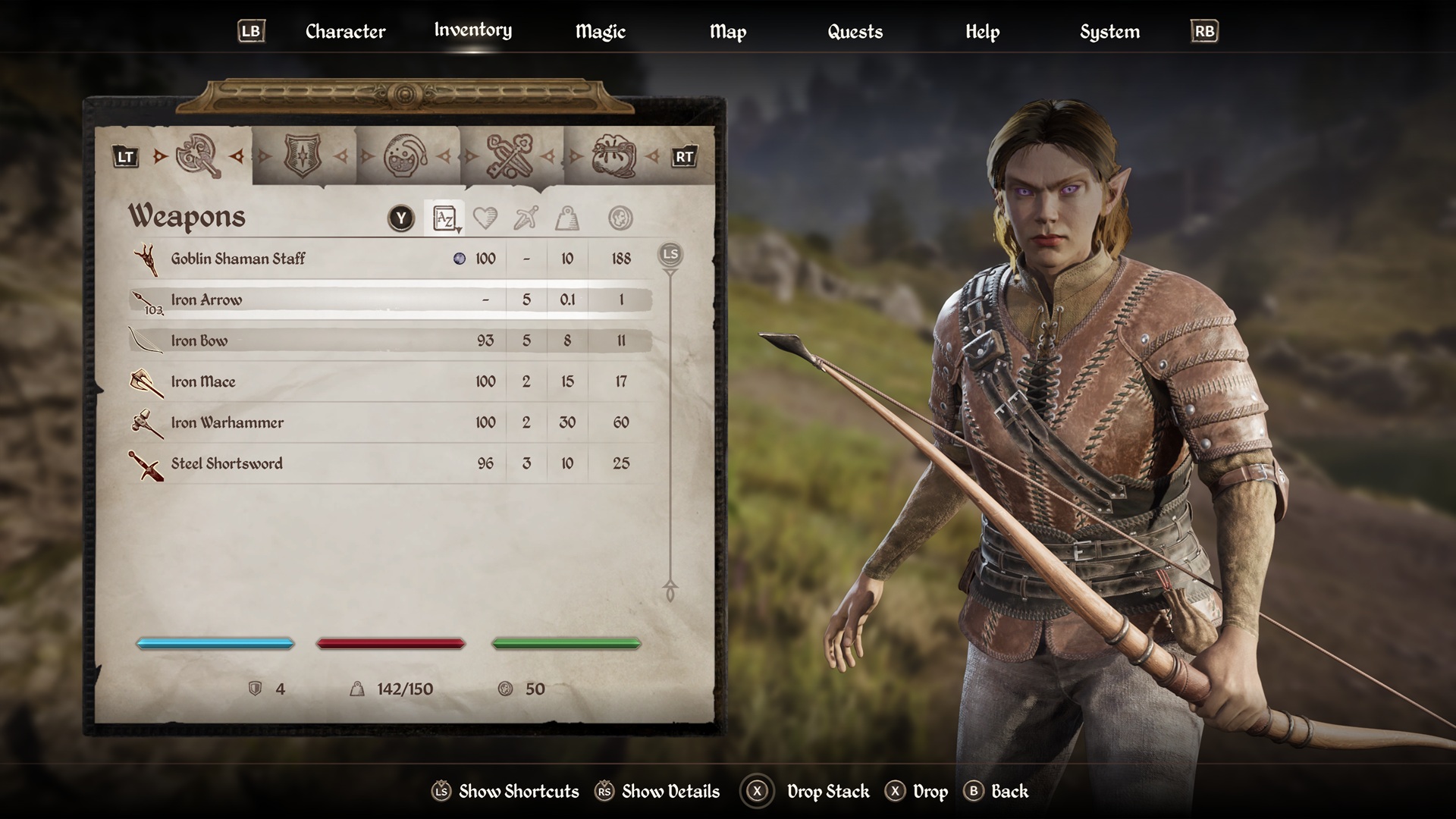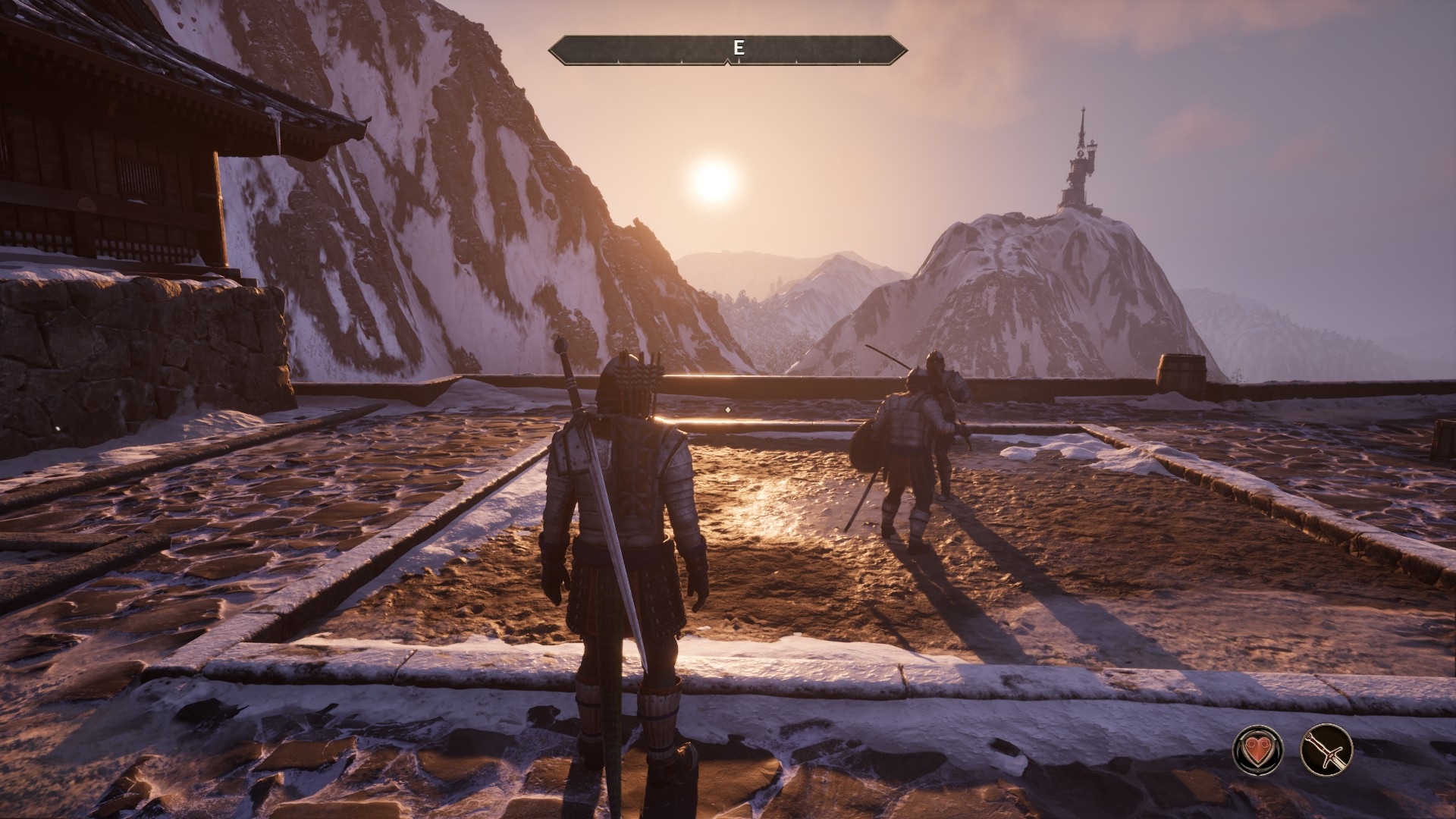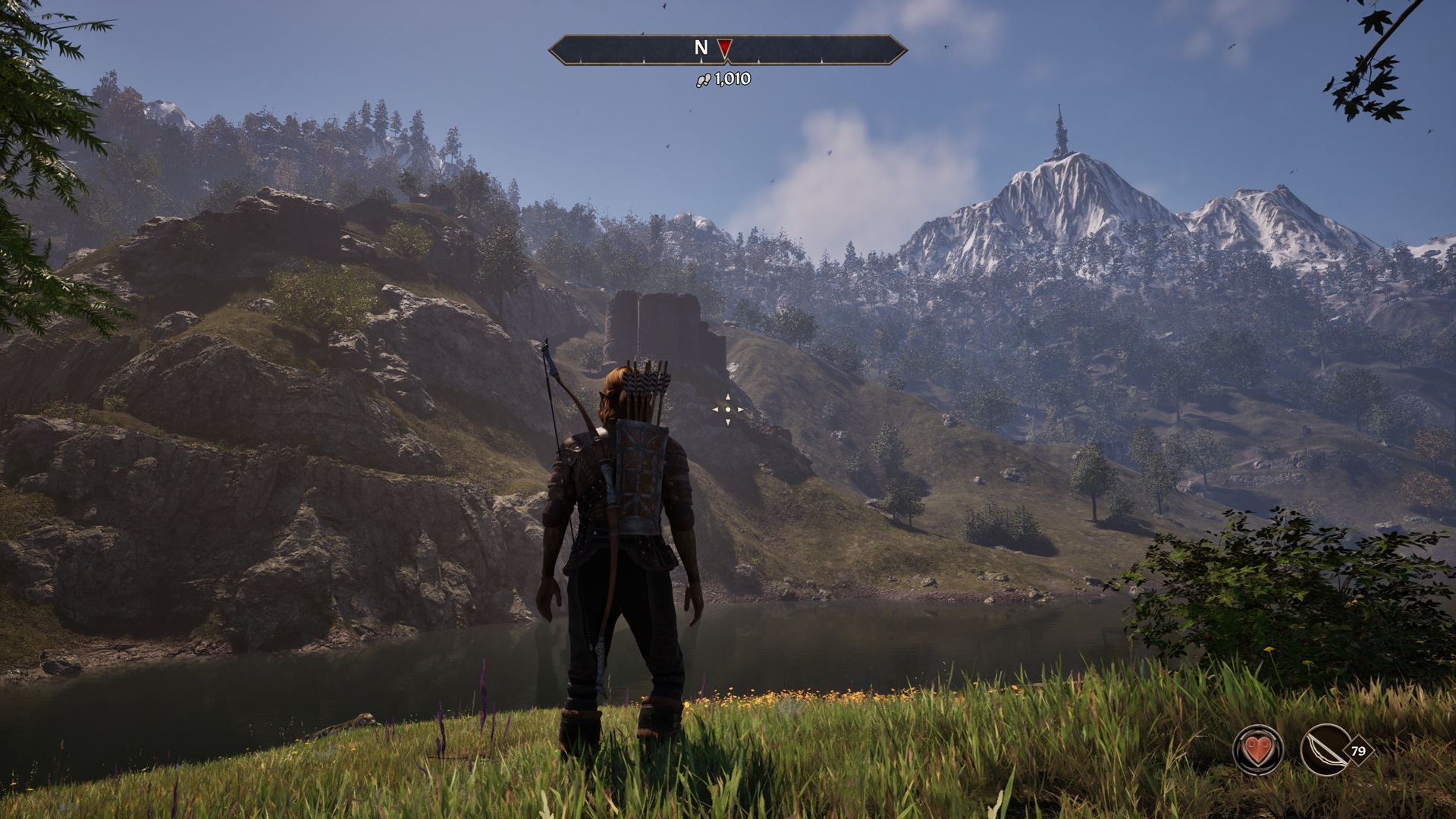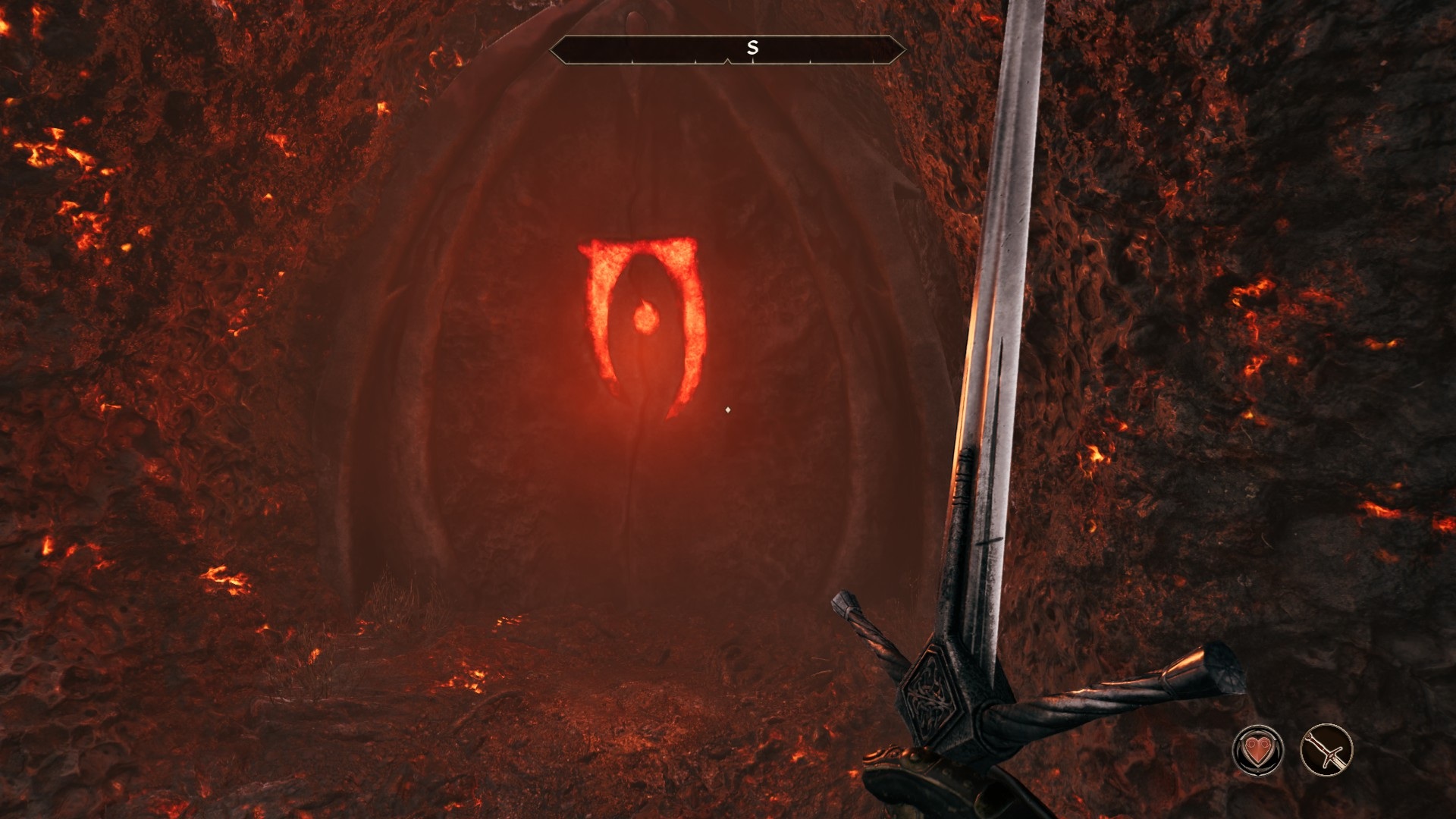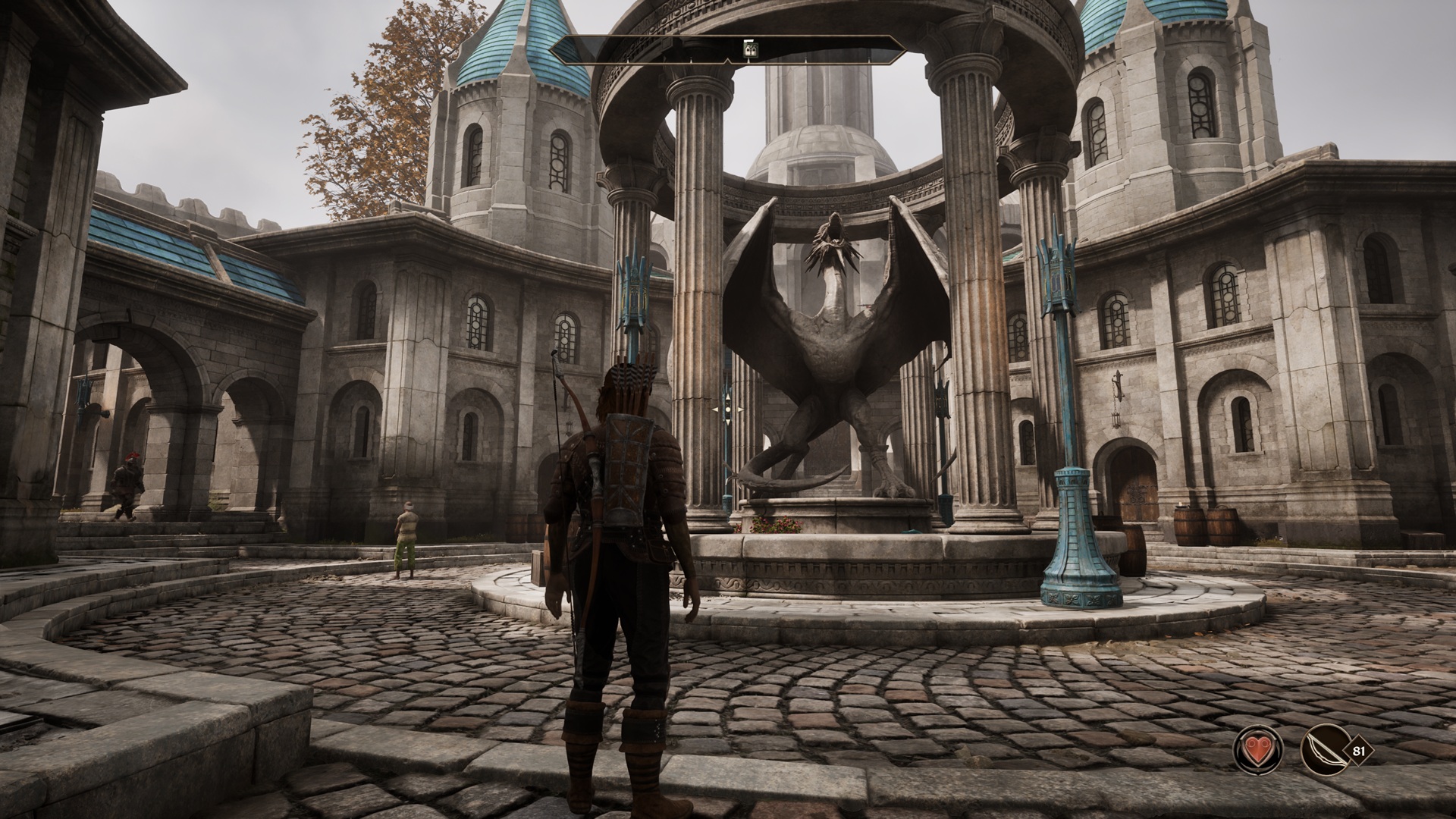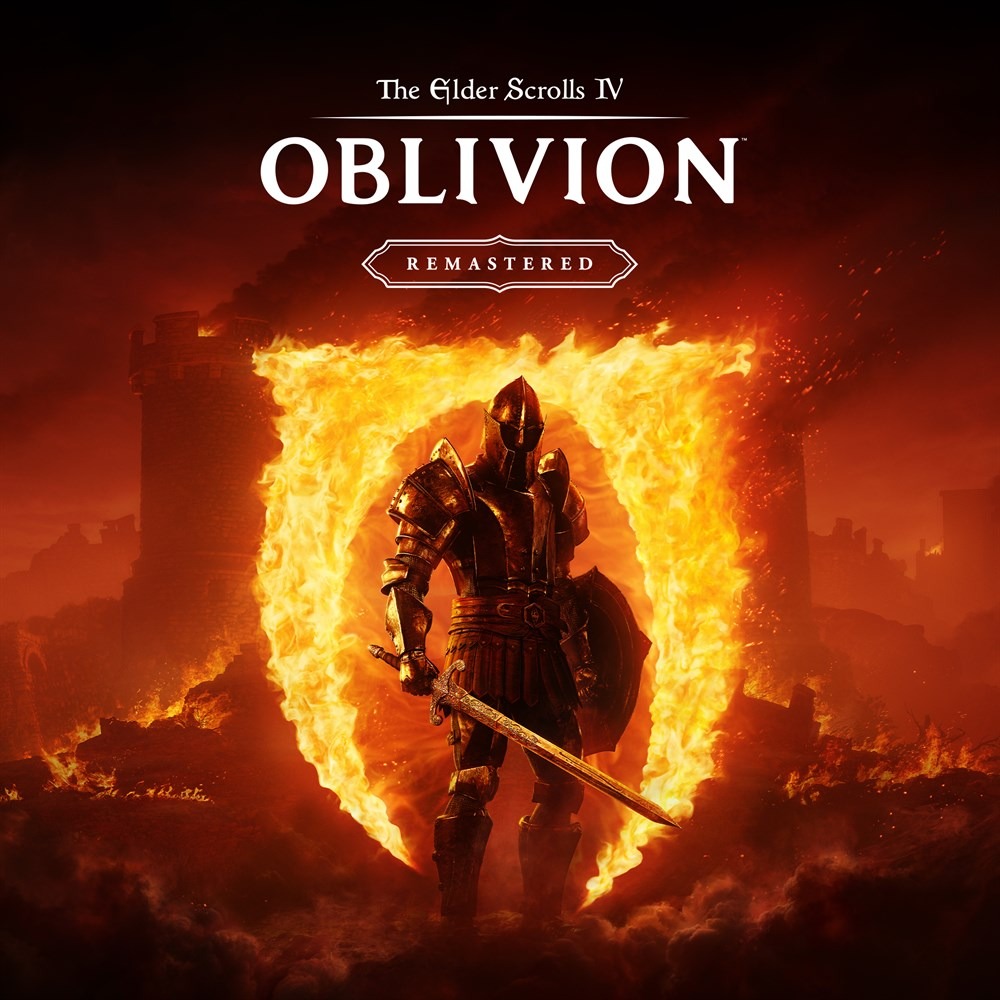Why you can trust Windows Central
Our expert reviewers spend hours testing and comparing products and services so you can choose the best for you. Find out more about how we test.
Daedra stalk the land. Assassins wield daggers in the dark. Magic stirs in ruins and forest. Mudcrabs leave no river unthreatened.
So goes Oblivion Remastered, an extensive revisit of Bethesda Game Studios’ original 2006 role-playing game (RPG).
With new visuals developed by Virtuos, The Elder Scrolls IV: Oblivion Remastered is updated to suit modern gaming hardware, with tweaks to the gameplay systems that enhance (but don’t replace) the experience the original Oblivion provides.
I’ve had an absolute blast revisiting Cyrodiil, and while a few tweaks would be nice, Oblivion Remastered sets a high bar for what it means to remaster a studio’s prior efforts and keeps everything that made it special preserved.

I came to love Bethesda games later than many (yes, The Elder Scrolls 5: Skyrim was my first!) but I quickly visited the studio’s older titles, falling in love with the freedom they provided and the imagination presented in each world.
This review was made possible thanks to an Xbox review code provided by Bethesda Softworks, as well as a Steam copy I purchased. The company did not see the contents of this review before publishing.
What is The Elder Scrolls 4: Oblivion Remastered?
- The Elder Scrolls 4: Oblivion Remastered is a single-player RPG.
- The original game was developed by Bethesda Game Studios.
- The remastered game’s development has been led by Virtuos.
The Elder Scrolls 4: Oblivion Remastered is a single-player RPG developed by Virtuos with support from Bethesda Game Studios and published by Bethesda Softworks.
As the name suggests, it’s a remaster of Bethesda Game Studios’ original 2006 game, The Elder Scrolls 4: Oblivion.
|
Category |
The Elder Scrolls 4: Oblivion Remastered |
|---|---|
|
Release date |
April 22, 2025 |
|
Developer |
Bethesda Game Studios, Virtuos |
|
Publisher |
Bethesda Softworks |
|
Genre |
Role-playing game |
|
Players |
Single-player |
|
Install size |
118.82GB |
|
Playtime |
30 hours (main path), 200+ hours (all quests) |
|
Platforms |
Xbox Series X|S, Windows PC, PlayStation 5 |
|
Xbox Game Pass |
Yess |
|
Reviewed on |
Xbox Series X and Windows PC |
In classic Elder Scrolls fashion, players can craft the character they want, from a human race like the Bretons, Nords, or Redguards, as well as the more strange species like Orcs, cat-like Khajiit, and lizard-esque Argonians.
While there is a main quest, players have freedom to engage in other quests as well, joining various Guilds to focus on combat, magic, thievery, or even assassination.
Oblivion Remastered opens with the player’s character (later known as the Hero of Kvatch) in prison, as the Emperor of Tamriel, Uriel Septim VII, realizes his doom is upon him as his Blades bodyguards attempt to prevent his assassination.
Demonic forces known as Daedra invade from the realm of the titular realm of Oblivion, threatening the province of Cyrodiil and soon, the entirety of Tamriel.
The Elder Scrolls 4: Oblivion Remastered review: Story and characters
- Oblivion Remastered features the exact same story as the original.
- The original voice acting has been kept intact.
- The main quest is fun, setting the stage for serious repercussions across Tamriel.
Following the Hero of Kvatch’s escape from prison, they seek out the rest of the Blades, as well as Martin Septim, the illegitimate son of the Emperor, and a possible way to combat the evil consuming the land.
If you’ve played the original Oblivion, you know what to expect from the rest. If you’re new and you somehow have managed to remain unspoiled after all these years, I won’t be the one to break that.
Suffice it to say, the Hero of Kvatch and the Blades fight back against the threat of Oblivion, and the consequences of this crisis are what set the stage for so much of the conflict in Skyrim.
If you are a newcomer, especially one who has previously played Skyrim with disdain for the Empire, then I highly encourage you to pay attention, as the story presented here is one of hope and human optimism in the face of ultimate evil, no matter the odds. You may find yourself seeing factions in Tamriel under a different light moving forward.
The Elder Scrolls 4: Oblivion Remastered review: Gameplay and features
- Oblivion Remastered has the same gameplay as the original 2006 title.
- Combat feedback has been improved, making melee weapons feel better.
- Skills have also been rebalanced, with the leveling system slightly tweaked.
The gameplay systems in Oblivion Remastered have been left mostly untouched, leaving it an almost identical experience to the original game. Players select a race (I created an Argonian on my PC and a Wood Elf on my PC), choosing different skills to specialize in, while not being restricted from trying anything.
At the core of the game is the same “be who you want to be” ethos that is the foundation of Bethesda Game Studios titles. The changes Virtuos has made work well, complementing rather than replacing the central design.
The few changes are noteworthy, however, with combat in particular receiving some attention. Blocking and landing hits with melee weapons feels better, which significantly aids the feeling of actually playing moment-to-moment. Swinging a claymore into goblins and blocking hits from a Dremora actually feels good!
There’s also an awesome new shortcut system, allowing you to easily assign a handful of commonly-used spells and weapons to a wheel. This is especially awesome for players on console, as it makes changing your inventory and testing out a weapon you just picked up extremely easy, as opposed to the constant inventory shuffle required in the original Oblivion or even Skyrim.
Skills have also been slightly balanced out, and leveling up is no longer quite as much of a pain as it used to be. It’s easier to just dump points into what you’d like compared to the original system, which restricted each level-up based on what skills you’d improved.
Underneath it all, it’s still Oblivion. NPCs alternate between reacting realistically to events and suddenly acting like they’ve been day-drinking. Numerous memes are already being recreated. It’s a respectful revisit to how everything just works.
The Elder Scrolls 4: Oblivion Remastered review: Visuals and audio
- Oblivion Remastered has completely new visuals that look beautiful.
- The visuals are done in Unreal Engine 5, which sits on top of the original tech.
- The original voices and soundtrack are in, with some new voice lines mixed in.
By far the biggest change to Oblivion Remastered is the new graphics. The visuals have been built with new assets by Virtuos using Unreal Engine 5. These completely rebuilt graphics then lay on top of Bethesda’s original Gamebryo engine, allowing the game to have the same systems alongside its new look.
That new look is fantastic, with Oblivion Remastered consistently delivering beautiful detail across Cyrodiil. Every character and enemy looks immaculate, with new designs that keep the spirit of the original game, maintaining a cohesive art direction that doesn’t betray Oblivion’s original, whimsical fantasy trappings.
Particularly impressive is the new lighting powered by Lumen, which provides ray tracing effects that cast realistic shadows, enhancing the game’s autumnal glow.
That gorgeous detail does come at a cost, and Oblivion Remastered is an extremely heavy game, especially when you walk outdoors into the open world. While I’ve had a smooth experience playing in performance mode on Xbox Series X, the framerate on PC (using an RTX 3070) takes a hit whenever I leave a cave or building.
It’s hardly unplayable, but it is noticeable, and I’d like to see updates bring this performance cost down a bit in the future in order to make the experience playing on PC more consistent.
The game’s original soundtrack is here, with all the same tracks that players would expect. While the original voice lines are also included (meaning you can expect to hear Patrick Stewart and Sean Bean’s iconic tones as members of the Septim family) there’s also a handful of new recordings, including from actors that lent voices to NPCs in Skyrim.
This mainly gives additional variety to the various random NPCs that dot Cyrodiil, but it did take a moment to get used to suddenly hearing a voice I associate with Skyrim in its predecessor.
The Elder Scrolls 4: Oblivion Remastered review: Accessibility and approachability
- Oblivion Remastered has a handful of accessibility options.
- Players can increase the size of fonts and subtitles.
- There’s also different difficulties, but more options would be good.
The Elder Scrolls 4: Oblivion Remastered has a handful of accessibility options, allowing players to tweak the game slightly in ways that weren’t available in the original release.
There’s a larger font option for in-game text and subtitles, which can be adjusted independently. Players can also remove head-bobbing and low-health vignettes if they prove too distracting or induce motion sickness.
While these options are good, I’d like to see more. For players with limited vision, even larger text would be good to have. The leaps between difficulty settings in combat are also drastic, with a night and day difference between each option, and having more granular control over the threats enemies pose would be ideal.
The Elder Scrolls 4: Oblivion Remastered review: My final thoughts
✅You should buy this if …
- You enjoy single-player, open-world role-playing games.
Bethesda Game Studios is known for single-player experiences that let people truly embody someone else in a fantastical world, be it fantasy, the far reaches of space, or a nuclear post-apocalypse. If you’ve always enjoyed single-player RPGs that give you an open world to explore, you’ll likely have fun in the now-modern trappings of Cyrodiil.
- You enjoy older-style fantasy games that have a bit of jank.
While Oblivion Remastered has been brought up to modern standards in visuals and some other options, the core underlying systems are all here, meaning you’ll likely see a bit of nonsense from NPCs as you play. For many players, that’s part of the charm, adding to the game’s whimsical tone and nature. If you think that concept sounds appealing, you’re certain to have fun here.
❌You should not buy this if …
- You play only on PC and don’t have a high-end computer.
The Elder Scrolls 4: Oblivion Remastered looks great, but there’s no denying it’s an extremely heavy game. Performance could use some improvement, especially on PC, and if you don’t have a fairly modern gaming rig, it might be a good idea to at least hold off until a patch or two makes the game a little smoother.
There’s an interesting discussion to be had about what it truly means to remaster a game. How much effort is put in? How much effort should be put in? At what arbitrary thin line do we argue that a game is actually a remake, not a remaster?
For my tastes and sensibilities, the worst thing about The Elder Scrolls 4: Oblivion Remastered is its name. This is a remake, if not in intent, then certainly in tone, and it’s a remake absolutely worth playing.
I appreciate this game’s authenticity to what Oblivion is at its core, keeping everything that mattered (including a fair number of shenanigans) while updating it to be more palatable and accessible on modern hardware.
Yes, performance could use some improvements. I certainly wouldn’t mind having some additional quality of life features added in future updates, especially to let me know if I’ve already cleared a dungeon or not. Xbox and Steam cross-saves would be lovely.
Ultimately, those things don’t take away from how special Oblivion is, and how much of a joy it is to explore even now, whether it’s a revisit or a player’s first experience. In a year already packed with excellent games, Oblivion Remastered is a gem that shouldn’t be missed.
With all the original DLC included, there’s easily 200 hours of things to do if you’re a player who wants to finish every quest, and that’s just on a single character.
I’m looking forward to spending countless further hours in Cyrodiil, and I hope we’ll see other titles from Bethesda Game Studios’ back catalogue given similar treatment in the future.
The Elder Scrolls 4: Oblivion Remastered is available now on Xbox Series X|S, Windows PC, (via Steam and the Xbox app) and PlayStation 5. Like all Xbox first-party games, it’s also available in Xbox Game Pass Ultimate and PC Game Pass.
The Elder Scrolls IV: Oblivion Remastered
The Elder Scrolls 4: Oblivion Remastered is at most points a great example of how to do a remaster (or remake) correctly, respecting the original game and faithfully bringing that same experience to the point that it is playable on modern hardware. Some tweaks and quality of life improvements would be nice, but what’s here is well worth diving into.


